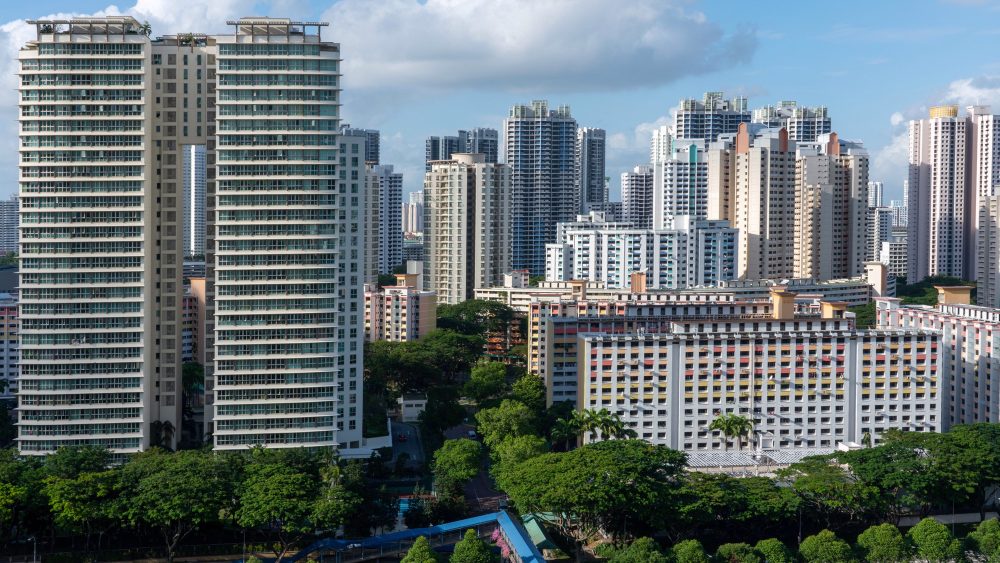SOUTHEAST ASIA: As multinational companies seek to reduce their dependence on China, many have turned to Vietnam and Indonesia as alternative hubs for their operations. Both countries have experienced significant growth in exports and foreign investments over the past few years, making them prime choices for diversifying supply chains. However, a new player has emerged in the region — Singapore. This city-state, known for its financial prowess, is positioning itself as a crucial part of the Asian economic landscape.
DBS group’s ambitious move into Malaysia
According to a Business Times article, the actions of DBS Group, the city-state’s largest lender, are a key indicator of Singapore’s growing ambitions in the region. Recently, DBS has expressed interest in acquiring a 29% stake in Alliance Bank Malaysia, possibly increasing it to 49%. This move would allow DBS to shift from offering corporate banking services to operating full-fledged banking services in Malaysia. If Malaysia’s monetary authorities approve the deal, Singapore’s growing regional influence will be cemented.
The motivation for DBS’s expansion is clear. The newly approved Johor-Singapore Special Economic Zone, designed to promote cross-border economic collaboration, could become a critical alternative for companies seeking to diversify supply chains outside China. The proximity of Singapore to Malaysia, combined with a new economic zone, has made this a strategic opportunity for DBS to strengthen its foothold in Southeast Asia.
A new era for Singapore and Malaysia
Singapore has long sought to build a low-cost, high-quality hinterland to complement its world-class financial sector. Despite past attempts to set up industrial hubs in Indonesia and China, Singapore has struggled to create a sustainable, effective economic partner nearby. However, recent developments in Johor, Malaysia, may finally fill this gap.
Johor offers a compelling advantage—its wages are significantly lower than Singapore’s, making it ideal for industries requiring affordable labour. With better infrastructure, such as a planned light-rail shuttle and more efficient customs procedures, the Johor-Singapore Special Economic Zone can become a game-changer for both countries.
For Malaysia, this collaboration provides an opportunity to build a regional economic hub similar to Shenzhen, China’s manufacturing powerhouse. The prospect of partnering with Singapore in this venture has gained traction, especially given the new political landscape in Malaysia, which fosters greater cooperation with Singapore. The revived high-speed train project between Kuala Lumpur and Singapore signals a growing willingness to work together and create a seamless flow of goods and services across borders.
A key player in regional infrastructure and trade
Singapore’s financial clout could be critical in developing Johor’s special economic zone. With its extensive network of free-trade agreements and strong international relationships, Singapore is well-positioned to bring investment and financing. The zone is already attracting significant interest, with global tech giants like Microsoft and Nvidia setting up data centres in Johor.
However, Johor faces challenges in attracting the talent needed to support such growth. To make this zone truly competitive, Malaysia will need to draw skilled workers from within and abroad. Fortunately, the proximity to Singapore, a hub of affluent consumers and talent, will make it easier to bridge the gap.
The benefits for Singapore are clear. While it stands to gain from new investments in Johor, cross-border traffic will also surge, with affluent Malaysians spending their weekends in Singapore. With this mutually beneficial arrangement, both nations are set to reap the rewards of enhanced collaboration.
The future of Singapore-Malaysia cooperation
As Singapore positions itself as a central player in Southeast Asia’s economic future, the Johor-Singapore Special Economic Zone represents a bold vision for regional cooperation. The revitalized relationship between Singapore and Malaysia, fueled by strategic investments and shared economic interests, will create new opportunities for businesses and workers. As the economic landscape shifts, this partnership could prove pivotal in reshaping Southeast Asia’s role in the global economy.

